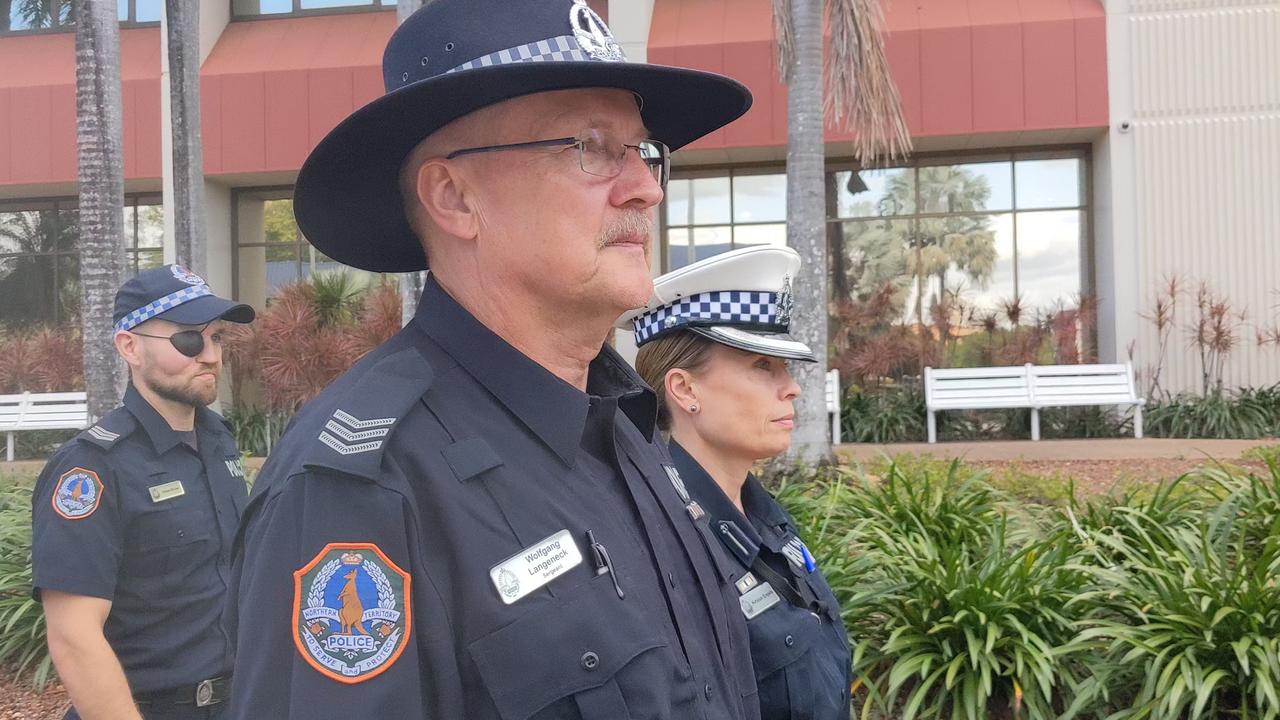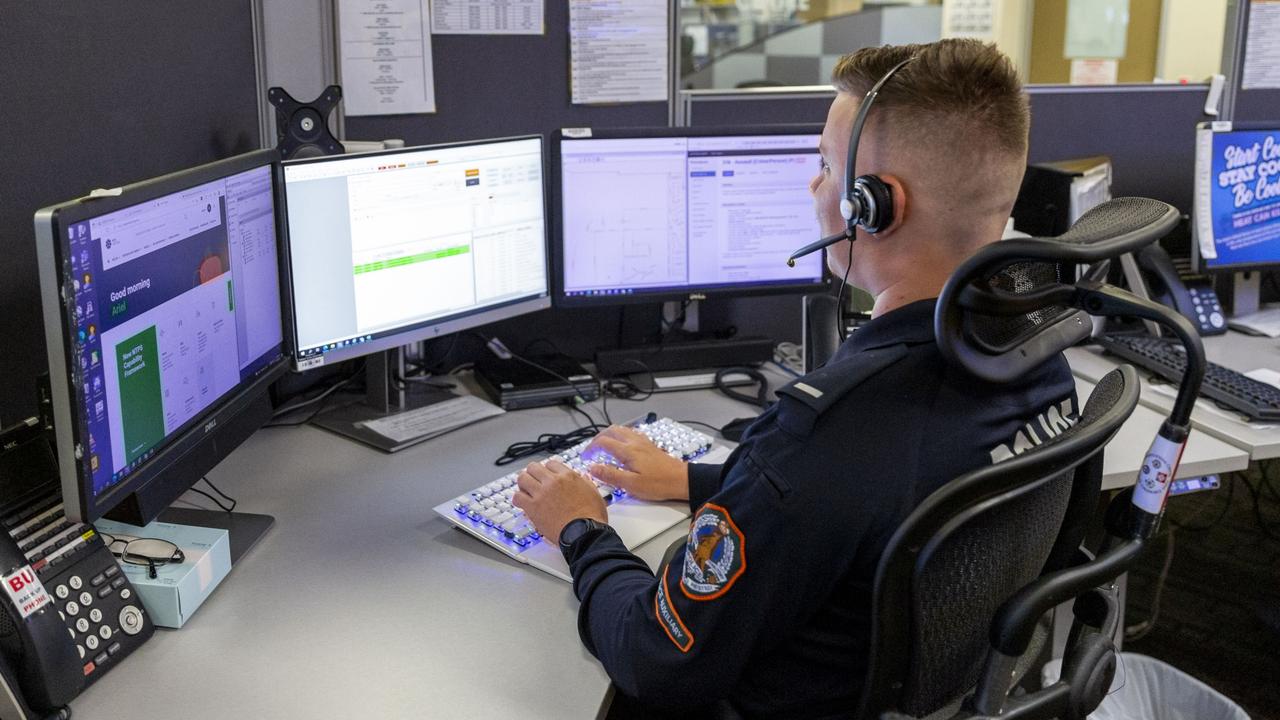Ngeygo Ragurrk inquest told police restructure needed: ‘We are struggling’
A triple-0 supervisor has called for a drastic overhaul of how NT Police investigates domestic violence cases, stating ‘we are struggling”.
Police on the beat who are overwhelmed by the number of domestic violence call-outs could hand over their investigations to specialist units under a radical proposal.
On the sixth day of the Ngeygo Ragurrk inquest, Joint Emergency Services Communication Centre Dispatch Sergeant Wolfgang Langeneck repeated warnings there were not enough crews to respond to triple-0 calls.
“If we don’t change the NT Police response, if we don’t involve plain clothes officers (like) the domestic violence unit, we won’t have enough crews,” he said.
Sergeant Langeneck said key promises were not being met, with code ones — the most urgent call outs — needing to be dispatched within 10 minutes, while code twos should be within half an hour.
“To prevent deaths and to have response crews really keep our code one promises on an average night … we are struggling,” he said.

On Monday Sergeant Langeneck presented coroner Elisabeth Armitage his proposal to restructure domestic violence responses by moving investigations away from general duties officers.
He proposed that domestic violence specialists be based in every watch house, with uniformed officers handing their cases over to them.
“I want DV units to be more involved in the carriage of investigation,” Sergeant Langeneck said.
“General duty first responders should not take carriage of any investigation.
“You arrest someone, you speak to the victim first.
“They should be able to walk into the watch house, upload their body worn, and give a very small verbal brief to that domestic and family violence unit member at the watch house.”
He said this would relieve general duties of following up with victims, potentially days after the assault when they were in a safe location.
He compared it to the operations of St John Ambulance, with paramedics able to hand over the care of their patients to the hospital.
“These first responders have been released of all the admin,” Sergeant Langeneck said.
General duties officers have repeatedly told the coroner more than 80 per cent of call-outs were to domestic violence incidents.
It is unclear how many more domestic violence specialists would be needed to meet this proposal.
Sergeant Langeneck said the need to free up crews was critical, given the life-and-death situations calling into the triple-0 centres.

He said even when police moved like “a Formula 1 tyre change team” they could still arrive too late.
He said when an Alice Springs woman called triple-0 after being stabbed, crews arrived within three minutes, even then “she still bled to death”.
“When you’re being chased by a machete, 15 minutes can be a long time,” he said.
He said the staffing pressures were not just on the ground, but also within his team at the Joint Emergency Services Communication Centre.
Sergeant Langeneck said sometimes the call-waiting lights were flashing “24-7”, with the peak of calls generally between 4pm and 2am.
“At midnight and after we’re at 100 per cent,” he said.
Sergeant Langeneck said triple-0 supervisors were often forced to downgrade urgent domestic violence jobs, if there were no crews ready on the ground.
He said this was only done if it could be established the victim was out of immediate harm, but was not the preferred response.
“It’s an internal response to an inability to meet category ones,” Ms Armitage said.
The latest NT Police annual report said 80.6 per cent of triple-0 calls were answered within 10 seconds, well below the 90 per cent target.
In 2016-17, 95.5 per cent of calls were answered in time.
Sergeant Langeneck said his team were doing their best to “get out of this red zone”, but said “the situation has worsened significantly”.
“We’re under minimum staffing,” he said.
Sergeant Langeneck told the inquest on Tuesday, that his often junior team were under intense pressure, with up to 70 per cent of calls difficult to understand due to language barriers, intoxication or other issues.

Estimating that 70 per cent of callers were Indigenous Territorians, Sergeant Langeneck said they were in desperate need for Aboriginal call-takers.
“Just one on the team makes a huge difference,” he told the inquest.
On Monday Ngeygo’s family’s lawyer James Lowrey asked how often interpreters were used by police in calling back victims in remote areas.
Sergeant Langeneck said he had only seen one instance an interpreter was asked to help in a domestic violence welfare check.
He agreed that as part of remote call-backs, it would be helpful to include allied services such as women’s shelters, sobering-up houses, or night patrols teams and use interpreters when possible.
“The more other agencies can assist us in reducing domestic violence, the better,” Sergeant Langeneck said.
Originally published as Ngeygo Ragurrk inquest told police restructure needed: ‘We are struggling’







